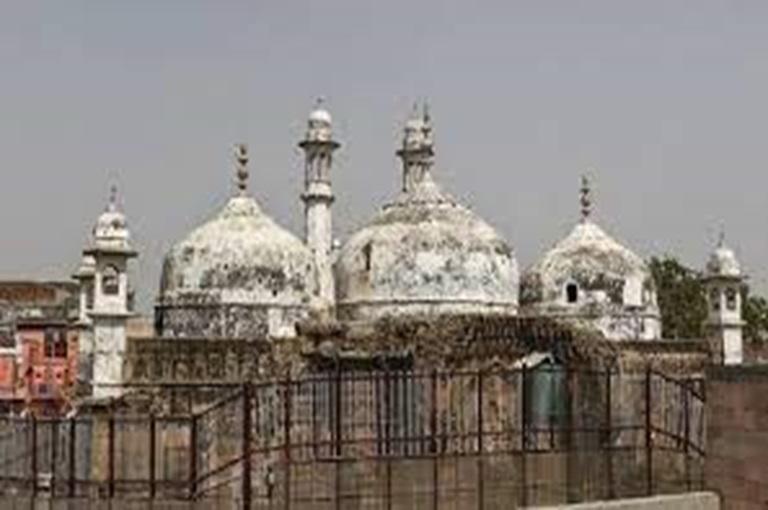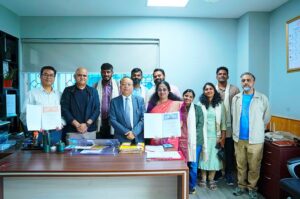Allahabad High Court greenlights temple restoration lawsuit at Gyanvapi site.

New Delhi: The Allahabad High Court dismissed petitions filed by Anjuman Intezamia Masajid (AIM) and the UP Sunni Central Waqf Board, challenging civil suits by Hindu litigants seeking the right to worship at the Gyanvapi complex and the restoration of a temple. The Hindu litigants claimed that the 17th-century mosque in Varanasi was constructed over a pre-existing temple structure.
Justice Rohit Ranjan Agarwal clarified that the Places of Worship Act, 1991 does not bar these civil suits, and emphasized the “national importance” of the dispute.
The judge stated that the law prohibits the conversion of a place of worship, and the original plaintiffs did not seek conversion. Instead, they requested a declaration about the religious character of a portion of the Gyanvapi complex. The high court asserted that the determination of the religious character of the disputed place should be addressed through judicial proceedings.
Agarwal mentioned that the compound can possess either a Muslim or Hindu character, and this determination should not occur during the framing of issues. The court observed that the lawsuit does not involve just two individual parties but affects two major communities of the country.
The high court directed the trial court to decide the suit expeditiously, preferably within six months, and ruled that no unnecessary adjournment shall be granted to any of the parties involved.
In response to the verdict, the Gyanvapi mosque management committee AIM stated that the legal battle would continue, expressing their determination to fight until justice is achieved. They planned to study the judgment and discuss further courses of action.
The legal battle also included a challenge to an April 2021 order of the Varanasi civil court, which permitted an Archaeological Survey of India (ASI) survey of the Gyanvapi complex. The survey was requested by five women seeking permission for daily worship of Goddess Shringar Gauri and other deities on the mosque premises. The high court addressed AIM’s objection, stating that the scope of the survey as part of the original 1991 suit was more extensive. The court directed that the ASI report be submitted before the trial court in this case as well, indicating that further investigation could be pursued if necessary.
The original suit was filed on October 15, 1991, in the Varanasi civil court on behalf of the ancient idol of Swayambhu Jyotirlinga Bhagwan Vishweshwar and others. The suit sought the restoration of the land where the Gyanvapi mosque stands, adjacent to the Kashi Vishwanath temple. It also demanded the removal of Muslims from the complex area and the demolition of the mosque, alleging that it was constructed after demolishing the Adi Vishweshwar temple.
AIM and the Sunni Waqf Board challenged the suit in the civil court, which initially dismissed the Hindu side’s plea in September 1997, citing non-maintainability under the Places of Worship Act, 1991. Several revision petitions were filed, leading to a district court order in September 1998, directing the civil court to re-adjudicate the dispute.
AIM further challenged this decision in the Allahabad High Court, which stayed the case in October 1998. The stay persisted until February 2020 when the petitioners requested the civil court to resume the hearing. As the High Court had not rectified the stay as ordered by the Supreme Court, the civil court resumed the hearing.
In April 2021, a fresh petition for an ASI survey was filed, and AIM and the Sunni Waqf Board challenged this order, as well as the maintainability of the original suit, leading to the recent judgment by Justice Agarwal.







